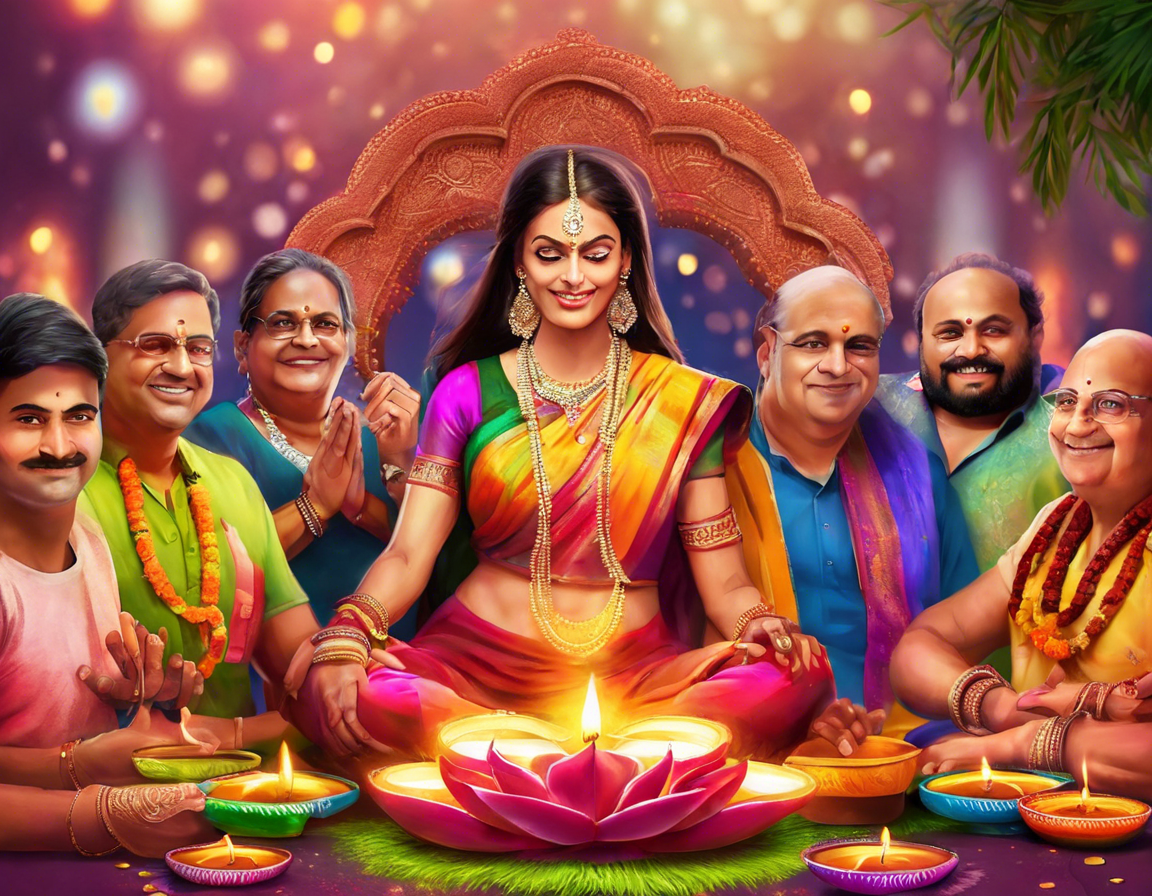The Diwali festival, also known as the “Festival of Lights,” is one of the most important and widely celebrated festivals in India, commemorating the triumph of light over darkness and good over evil. The festival usually falls in either October or November, with the celebration lasting for five days and culminating in the main day of Diwali. During this time, homes are decorated with lights and candles, families come together, and prayers are offered to Goddess Lakshmi for prosperity and good fortune.
Diwali Puja is a significant ritual performed by Hindu households on the day of Diwali. It involves offering prayers and performing various rituals to seek the blessings of the divine for wealth, prosperity, and well-being. One of the essential aspects of Diwali Puja is performing it at the right Muhurat or auspicious time. Performing the Puja at the right Muhurat is believed to enhance the efficacy and benefits of the ritual.
Importance of Diwali Puja Muhurat
The significance of following the auspicious time or Muhurat for Diwali Puja lies in the belief that during certain periods, the cosmic energies are aligned favorably, making it conducive for spiritual practices. It is believed that performing the Puja during these favorable times enhances the positive effects and ensures the fulfillment of one’s wishes and desires.
Diwali Puja Muhurat 2023
As the auspicious timings for Puja may vary from year to year based on planetary positions and other astrological factors, it is essential to consult a Panchang or an astrologer for the accurate Muhurat timings for Diwali Puja in 2023. However, based on general guidelines and past trends, the following timings are typically considered favorable for performing Diwali Puja:
Date: November 2, 2023
Lakshmi Puja Muhurat: 05:40 PM to 07:19 PM
Duration: 1 Hour 39 Minutes
Steps for Diwali Puja
Performing Diwali Puja involves several rituals and steps, all of which are done with utmost devotion and sincerity. Here is a step-by-step guide on how to perform Diwali Puja:
Preparations
- Clean the House: Thoroughly clean and decorate the house with lights, candles, and rangoli.
- Gather Puja Samagri: Collect all the necessary items required for the Puja, including idols or images of deities, incense sticks, flowers, fruits, sweets, and Puja utensils.
- Set Up the Puja Place: Create a sacred space for the Puja, preferably in the prayer room or a clean area of the house.
Puja Rituals
- Ganesh-Lakshmi Puja: Begin the Puja by invoking Lord Ganesh followed by Goddess Lakshmi, the deity of wealth and prosperity.
- Offerings: Offer flowers, incense, fruits, and sweets to the deities while chanting mantras and prayers.
- Aarti: Perform Aarti to conclude the Puja and seek the blessings of the divine.
Frequently Asked Questions (FAQs)
1. What is the significance of Diwali Puja?
– Diwali Puja is performed to seek the blessings of Goddess Lakshmi for prosperity, wealth, and well-being.
2. Why is Muhurat important for Diwali Puja?
– Performing the Puja at the auspicious Muhurat is believed to enhance the positive effects of the ritual.
3. Can Diwali Puja be performed at any time during the day?
– It is recommended to perform Diwali Puja during the specific Muhurat timings for maximum benefits.
4. What are some common items required for Diwali Puja?
– Common items for Diwali Puja include idols or images of deities, incense sticks, flowers, fruits, sweets, and Puja utensils.
5. Can anyone perform Diwali Puja?
– Yes, Diwali Puja can be performed by anyone regardless of age or gender, with devotion and sincerity.
6. How can I find the accurate Muhurat timings for Diwali Puja in my location?
– Consult a Panchang or an astrologer for the precise Muhurat timings based on your location.
7. Are there any specific mantras to be chanted during Diwali Puja?
– Yes, there are specific mantras dedicated to Goddess Lakshmi that can be chanted during the Puja for blessings.
8. What should one do after completing the Diwali Puja?
– After completing the Puja, it is customary to distribute Prasad (blessed food) to family members and friends as a gesture of sharing the blessings.
9. Can Diwali Puja be performed collectively with family members?
– Yes, Diwali Puja is often performed collectively by family members as a way to bond and seek blessings together.
10. Is fasting required as part of Diwali Puja rituals?
– While fasting is not mandatory, some individuals choose to fast as a sign of devotion and purification during auspicious occasions like Diwali.
Performing Diwali Puja at the right Muhurat and following the prescribed rituals with devotion can bring immense joy, prosperity, and blessings to you and your family. May this Diwali be filled with light, happiness, and spiritual fulfillment!
